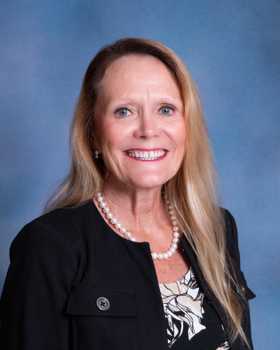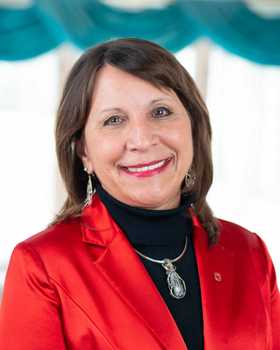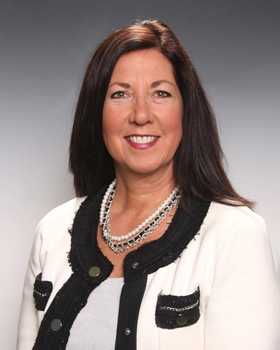Make your mental health and well-being a priority
We offer a holistic guide to mental health and well-being along with individualized resources to meet your needs and wellness goals.
Let’s get started
Which role best describes you?
How it Works
Step 1
Take the Questionnaire
Tell us a little about yourself. We’re good listeners and here to support you. Several short assessments are available for you to check your stress and mental health, and see where you compare with scores considered normal.

Step 2
Get Individualized Resources
Get your personalized recommendations backed by experts. We use your responses to the questionnaires to suggest resources that are supported by research and can help improve your well-being. Some of these resources we developed and some are by respected sources in the field.

Step 3
Keep Working at It
Once you complete the assessments, your answers will be automatically summarized and a score for each assessment will be presented in colors (green, yellow, red) and a category of low, moderate, high or not concerning/concerning. Based on your scores, tailored resources embedded in the program will be recommended. Return as needed to re-assess and seek additional resources.

Health and Well-being Benchmarks
This questionnaire is comprised of six brief assessment tools that capture a holistic assessment of your mental health and well-being which is used to provide you with personalized resources

Health and Well-being Benchmarks
This questionnaire is comprised of six brief assessment tools that capture a holistic assessment of your mental health and well-being which is used to provide you with personalized resources

Anxious Emotions
You will learn to identify and manage anxious emotions. Anxious emotions are common, but some people have greater levels and suffering that interferes in their ability to function daily. They need relief using self-care strategies and professional medical assistance, just as if diabetes were the health issue.

Sad Emotions
You will learn to identify how to accept and manage sad emotions. Everyone has sad emotions, but some people have greater levels and suffering that needs relief, just as people with heart disease need self-care strategies and professional medical assistance

Traumatic Experiences
More than 50% of individuals experience some form of trauma in their lives. Exposure to incident(s) that are emotionally disturbing or life-threatening may result in lasting adverse effects. However, there are evidence-based strategies and approaches that can help individuals heal

Alcohol and Drug Use
Consumption of alcohol in moderation can be safe and enjoyed. Likewise, prescription drugs when used as prescribed can help in the healing process. However, both alcohol and drugs can be misused and significantly impact one’s ability to live healthy and well. We aim to help you know healthy and unhealthy use of alcohol and drugs and how you can change your use when misuse occurs.

Health & Well-being
There are many research-based skills and tools that can help you build resilience, cope with stress, take self-care, and know when you need more help. You will be directed to these resources based on your individual needs, and can access any you want to learn more about.

Stress Responses and Management
Humans have built in stress responses to any perceived danger. These responses can make us feel out of sorts or even ill. We offer self-care strategies that can help you identify and manage when you are feeling symptoms of overwhelm and offer ideas for when you may want to seek professional help.

Burnout
According to the World Health Organization (WHO), occupational burnout is a syndrome resulting from chronic work-related stress, with symptoms characterized by feelings of energy depletion or exhaustion; increased mental distance from one’s job, or feelings of negativism or cynicism related to one’s job; and reduced professional efficacy.
Meet our Director, Sharon Tucker

Sharon Tucker, PhD, APRN-CNS, PMHCNS-BC, NC-BC, EBP-C, FNAP, FAAN is Professor and Chair of the Department of Nursing Practice with the University of Central Florida. Dr. Tucker holds board certification as an APRN-CNS in psychiatric mental health nursing and as an Integrative Nurse Coach. She studies, practices, and teaches behavior change and mental health interventions, with a strong focus on women and children, employees, and students.
Meet our Co-Creator, Bernadette Melnyk

Bernadette Mazurek Melnyk, PhD, APRN-CNP, EBP-C FAANP, FNAP, FAAN, is recognized nationally and globally for her expertise in evidence-based practice, mental health, intervention research, and health and well-being along with her innovative approaches to a wide range of health and healthcare challenges. She serves as Ohio State’s Vice President for Health Promotion, University Chief Wellness Officer, and Helene Fuld Health Trust Professor of Evidence-based Practice. She is the founder of the Helene Fuld Health Trust National Institute of Evidence-based Practice and a professor of pediatrics and psychiatry at Ohio State’s College of Medicine.
Meet our faculty expert, Jacqueline Hoying

Dr. Jacqueline Hoying is assistant professor of clinical nursing and director of MINDSTRONG at The Ohio State University College of Nursing. A board-certified health and wellness coach and behavioral researcher, Dr. Hoying’s focus is on promoting optimal well-being, mental resilience, and reducing stress, anxiety and depression among college-age young adults, health professionals and adults. Dr. Hoying is a recognized expert in cognitive behavioral research and nationally facilitates workshops for professionals to deliver the evidence-based program. She presents nationally/internationally and publishes in peer-reviewed journals.